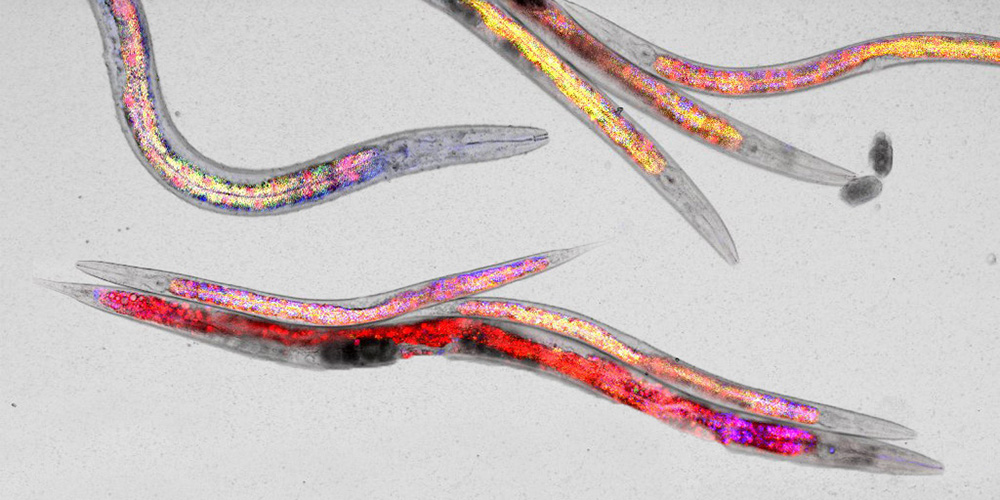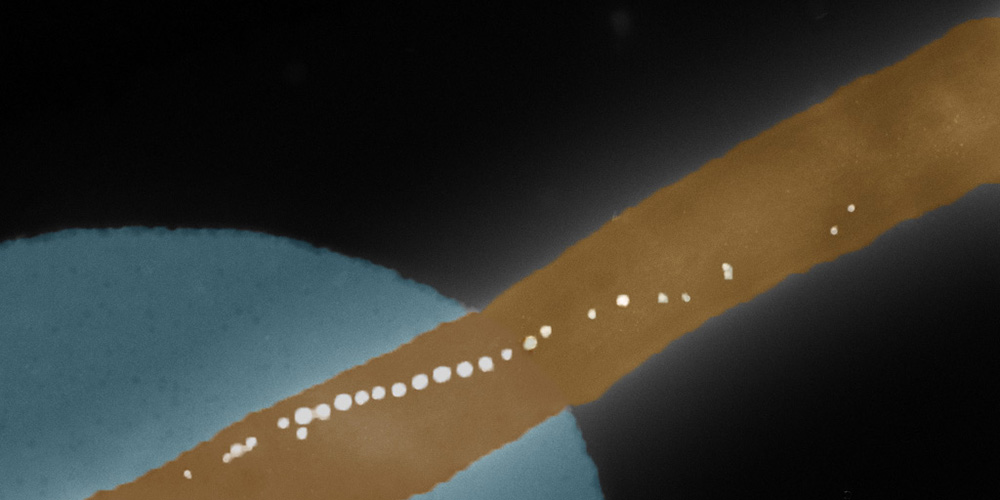Longevity research: Dietary stress supports healthy aging
Certain nutrients in food can trigger a mild stress response in nematodes. But instead of making them sick, this actually helps them stay healthier as they age, according to researchers at the University of Basel.
01 October 2025 | Katrin Bühler
People are living longer than ever, but a long life doesn’t necessarily mean a healthy one. For many, the question isn’t so much “How old do I want to get?” but rather “How do I want to get old?”. While lifespan refers to the years we live from birth to death, “healthspan” describes the number of years we spend in good health.
Healthy aging is also a question of diet. It’s long been known that not just the quantity, but also the individual nutrients impact how we age. Using the tiny worm Caenorhabditis elegans, Spang’s team has now demonstrated that certain RNA molecules in food have a positive effect on the worm’s fitness in old age. “These molecules prevent the formation of harmful protein aggregates that are typically linked with aging and disease,” says Spang. The results of their study have been published in Nature Communications.
How diet shapes aging
With age, the body becomes less efficient at removing altered and damaged proteins. These can accumulate and form harmful protein aggregates in cells. Such protein aggregates are considered drivers of aging and are associated with multiple age-related diseases including muscular and neurodegenerative diseases such as Alzheimer’s and Parkinson’s disease.
The researchers have discovered that a balanced diet promotes healthspan and specific components in the nematode’s diet exert a protective effect. The worms feed mainly on bacteria that contain double-stranded RNA molecules. “These dietary RNAs are absorbed in the gut and activate quality-control mechanisms to protect from cellular stress,” explains Emmanouil Kyriakakis, the study’s first author.” This low-level stress essentially trains the body to cope with protein damage more effectively.”
Diet-dependent mechanisms slow cellular aging
Diet activates autophagy—a cellular “clean-up” process that degrades and recycles damaged proteins. This mechanism reduces harmful protein aggregation and thus slows down cell aging. “We were surprised to find that the gut communicates with other organs,” says Kyriakakis. “We observed protective effects not only locally, but also in muscles and throughout the whole organism.”
Overall, the worms exposed to a balanced diet were more active and healthier in old age. “The dietary-RNA species elicit a systemic stress response that protects the worms from protein aggregation during aging,” says Kyriakakis. “thereby extending their healthspan.”
The findings confirm that diet strongly influences health in old age. “Specific food components can stimulate the body’s own protective mechanisms,” adds Spang. “So, a little stress can be good for you.” Whether individual nutrients can also spark beneficial effects in humans – and potentially help prevent age-related diseases – remains to be investigated. But it’s certainly conceivable. What is clear already: What we eat can shape the way we age.
Original publication
Emmanouil Kyriakakis, Chiara Medde, Danilo Ritz, Geoffrey Fucile, Alexander Schmidt and Anne Spang.
Bacterial RNA promotes proteostasis through inter-tissue communication in C. elegans.
Nature Communications (2025), doi: 10.1038/s41467-025-63987-x


